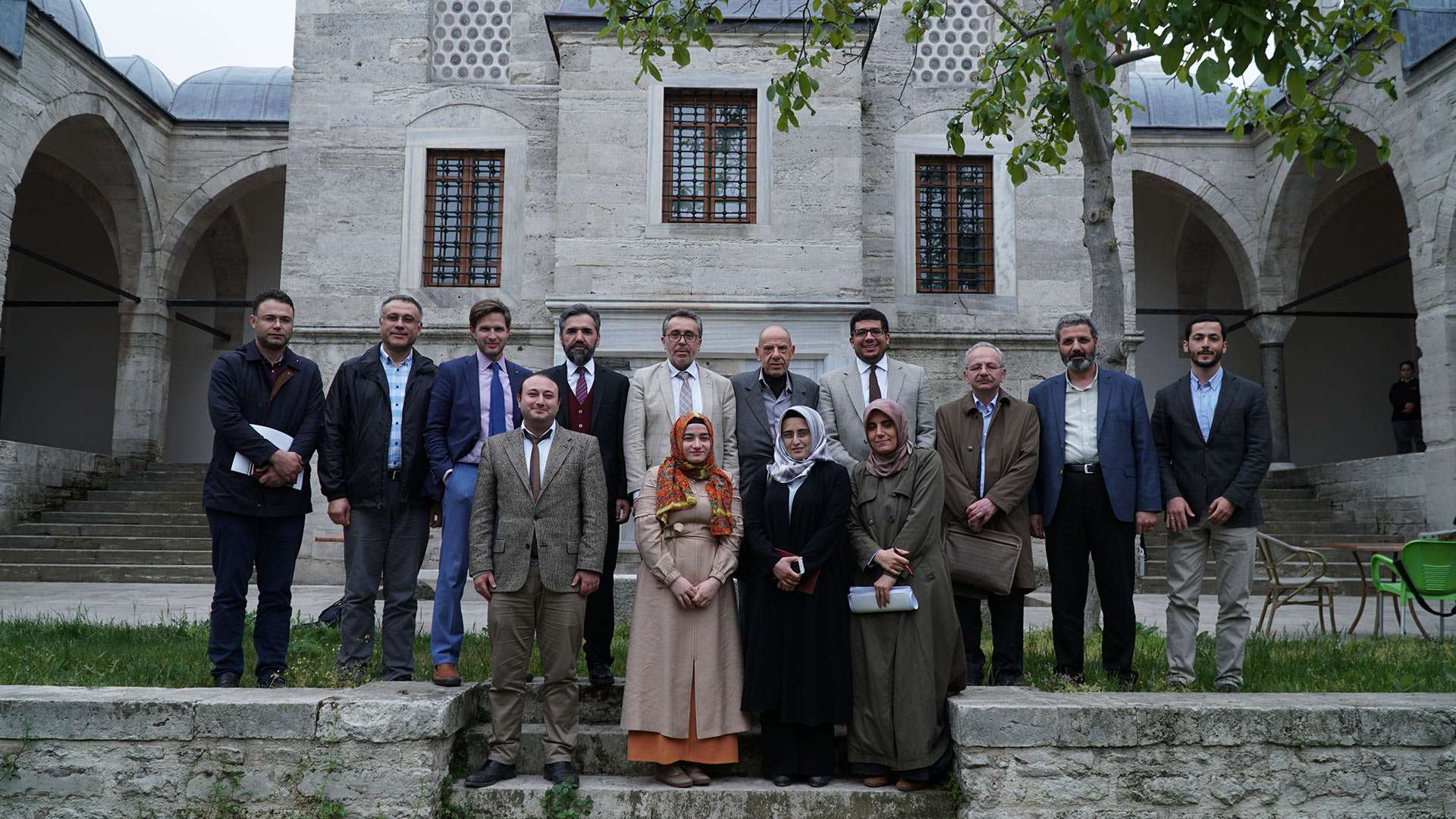


The Alliance of Civilizations Institute (ACI) at Ibn Haldun University organized a workshop titled 'Revisiting Ottoman Reforms: The Problem of Legitimacy', co-organized by ACI, Istanbul University's School of Theology and Prince Alwaleed bin Talal Center for Muslim-Christian Understanding at Georgetown University, on 4-5 May at the Medrese-i Salis Building of ACI in the Süleymaniye Külliye/Complex.
Participants included Recep Şentürk, Murteza Bedir, Jonathan A. C. Brown, İsmail Kara, Engin Deniz Akarlı, Samy Ayoub, Sami Erdem and Vahdettin Işık among others from Turkey and abroad. Jonathan Brown, who gave the keynote address of the workshop on the mazālim courts, remarked that the legal developments in the late Ottoman period often get interpreted as mere outcomes of Western influence, whereas they could also be contextualized by looking at the general global trends of the 19th century towards codification and reform, which found local reverberations in regional contexts. The workshop discussed the late Ottoman legal reforms, including constitutional reforms, developments in human rights and penal law, the Mecelle, 1917 Hukuk-ı Aile Kararnamesi (1917 Decree of Family Law), and finally, developments in commercial and waqf law.
Murteza Bedir said that the Ottoman legal reforms of the 19th-20th centuries were components of a greater institutional reform project also devised by the Ottoman ulema and the Şeyhülislam in light of the circumstances of the time and contemporary developments of the era. Recep Şentürk argued that the notion of equality of human beings found in the classical fiqh literature found a new, broader iteration in the discourse of the ulema in the 19th century, as a result of the expanding understanding of equality. The contributors stressed in the final evaluation session of the workshop that the legal reforms of the late Ottoman period pose a complex phenomenon that requires alternative questions and points of reference that would do justice to the complicated nature of the developments in question. The workshop welcomed the new literature emerging in the past couple of decades bringing to light new documents of the period and new approaches to the subject. The workshop concluded with an intention to organize follow-up workshops for the study of the period in question with its political, cultural, religious aspects to develop a deeper and more nuanced scholarly understanding.